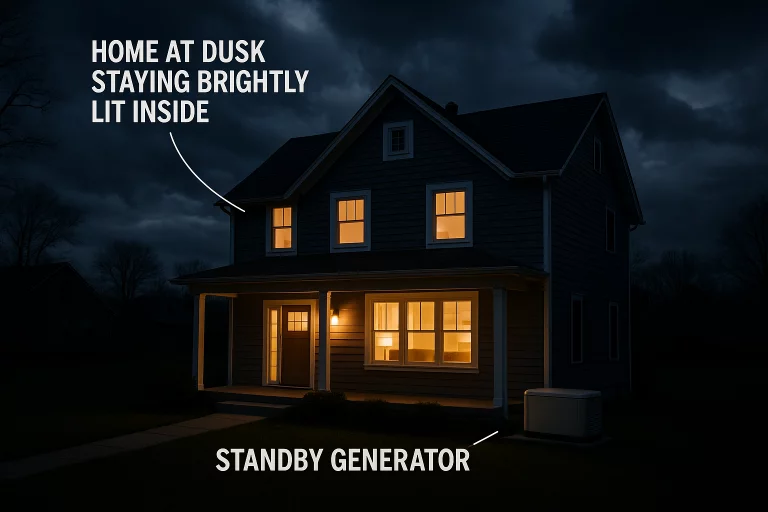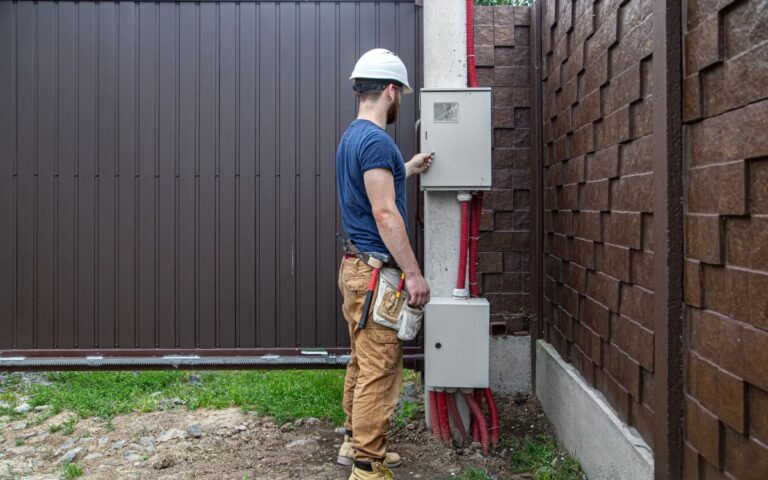Table of Contents
- Overview of Standby Generator
- What Is a Standby Generator?
- How Do Standby Generators Work?
- Key Components of a Standby Generator
- Benefits of Installing a Standby Generator
- Choosing the Right Standby Generator
- Maintenance and Testing
- Cost Considerations

Overview of Standby Generator
Unexpected power outages can disrupt daily life, posing safety and comfort risks. In regions with severe weather, such as the Florida Panhandle, emergency preparedness is crucial. Standby generators provide a reliable and automatic solution, supplying power to critical systems. Pensacola Generac generators offers professional advice and top-tier equipment. Understanding standby generators helps families protect their comfort, health, and security, regardless of the challenges nature presents. They ensure appliances and technologies remain operational during power loss, with minimal homeowner involvement. This comprehensive guide provides information on standby generators, their functions, components, benefits, selection, maintenance, and expected costs. With this knowledge, homeowners can invest in long-term safety and peace of mind for their households.
What Is a Standby Generator?
A standby generator is a permanent, integrated backup power solution that provides uninterrupted electricity to a home during a power outage. Unlike portable generators, which require manual setup and refueling, standby generators are integrated into the electrical system and connect directly to natural gas or propane. They automatically restore power within seconds, ensuring that essential systems, such as heating, cooling, refrigeration, lighting, and medical equipment, continue to operate. Installed outdoors, standby generators can withstand weather conditions and deliver continuous power without homeowner intervention. Many homeowners consider standby generators a core part of their emergency response plans, providing reliability without compromising safety or comfort.
How Do Standby Generators Work?
A standby generator is a powerful and efficient system that automatically responds to power loss. Its main feature is the automatic transfer switch (ATS), which constantly monitors the home’s main utility supply for voltage fluctuations or outages. If an electrical interruption is detected, the ATS triggers the generator to start, ensuring no homeowner intervention is required. Once the generator achieves the correct speed and power output, it disconnects the home’s electrical system from the grid, transferring the load to the generator. Once utility service is restored, the ATS safely reverts the home to grid power, and the generator powers down automatically. This intelligent automation ensures the continuity of everyday functions and critical systems, preventing issues such as spoilage, frozen pipes, or disabling of the security system.
Benefits of Installing a Standby Generator
Standby generators offer numerous benefits to homeowners, including uninterrupted power supply, automatic, hands-off operation, enhanced safety, and increased and improved property value. These systems ensure that essential appliances, such as refrigerators, sump pumps, climate control systems, and medical equipment, continue to operate smoothly during hurricanes, extended power outages, or sudden storms. They also provide a boost to property resale value, appealing to buyers concerned about power reliability in storm-affected regions. Reliable power also keeps security cameras, alarms, electronic locks, and lighting functional, reducing vulnerability to criminal activity and maintaining household safety. Consult local experts for individualized recommendations and robust generator solutions.
Choosing the Right Standby Generator
The choice of a standby generator depends on your unique needs, home infrastructure, and budget. It’s crucial to assess power needs, select a suitable fuel type (natural gas or propane), and ensure the generator is installed in a safe, compliant outdoor space. Factors like noise restrictions, proximity to living areas, flood risks, and ease of service access should be considered. A qualified electrician or licensed installer can ensure proper sizing, code compliance, and reliable performance. For more information, consult Consumer Reports’ Standby Generator Buying Guide. It will help you make an informed decision about whether your generator is suitable for your needs.

